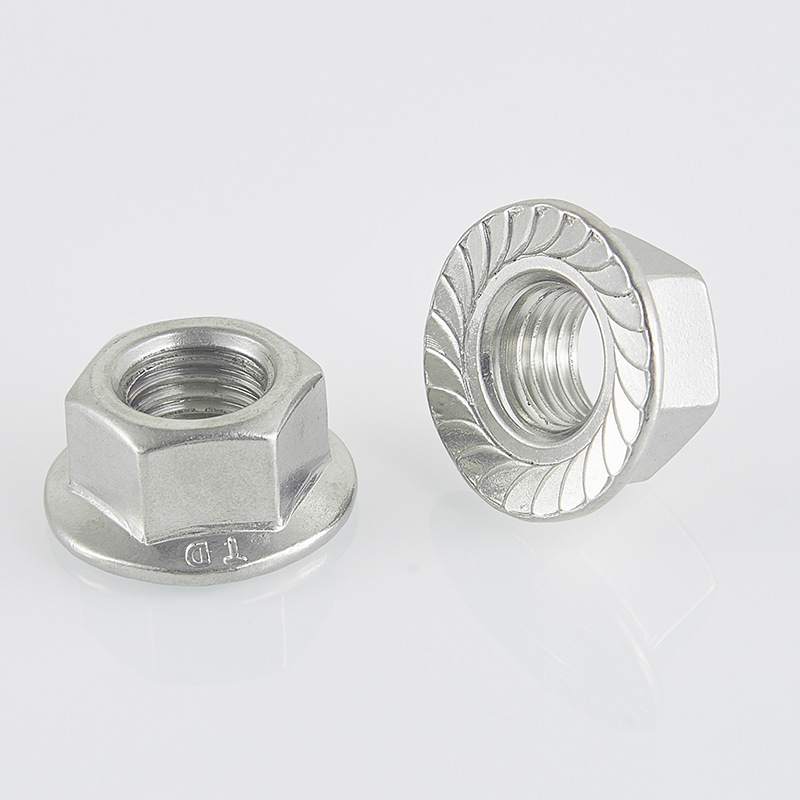

m8 plain washer
Nov . 16, 2024 21:31 Back to list
m8 plain washer
Understanding the M8 Plain Washer A Crucial Component in Mechanical Assemblies
In the realm of mechanical engineering and assembly, small components often play vital roles in ensuring the integrity and reliability of larger systems. One such component is the M8 plain washer, a seemingly simple yet essential piece of hardware that contributes to the effectiveness of bolted joints. Understanding its design, application, and importance can help engineers and builders make informed decisions when assembling various projects.
What is an M8 Plain Washer?
A plain washer, specifically an M8 washer, is a flat disc made of materials such as steel, stainless steel, plastic, or various alloys. The M8 designation indicates that the washer is designed for a metric bolt with an 8 mm diameter. The primary purpose of a washer is to distribute the load of a nut or bolt across a larger surface area, preventing damage to the materials being fastened. This load distribution minimizes the risk of deformation or failure, particularly in softer materials such as wood or plastic.
Types of Plain Washers
While the M8 plain washer is commonly referred to in general terms, it is essential to note that there are various types and standards. Washers can differ in thickness, material composition, and surface finish, each impacting their performance in specific applications. For example, hardened washers are used in high-load applications to resist deformation, while flat washers are ideal for standard use where minimal load stress is expected.
In addition to varying thickness and material, the finish of the washer can affect its corrosion resistance and aesthetic appearance. Zinc-plated washers, for instance, provide a layer of protection against rust, making them suitable for outdoor applications. Galvanized or stainless steel washers offer even greater durability and longevity.
Applications of M8 Plain Washers
M8 plain washers find application across various industries, from automotive to construction, electronics to furniture manufacturing. They are commonly used in
m8 plain washer

1. Automotive Industry In vehicles, M8 washers are critical for securing components of the engine, suspension, and body panels, providing essential support while absorbing vibrations.
2. Construction Builders frequently utilize M8 washers when fastening beams, columns, and other structures. They help ensure that connections are secure and stable, particularly in high-stress environments.
3. Manufacturing In assembly lines, M8 plain washers are used extensively in the construction of machines and equipment. Their role in distributing loads prevents mechanical failure during operation, thus enhancing overall productivity.
4. Furniture Assembly In home and office furniture assembly, M8 washers ensure that parts are held securely together, contributing to the durability and safety of the final product.
The Importance of Choosing the Right Washer
Selecting the correct washer for a specific application is crucial for ensuring the long-term performance and safety of an assembly. A mismatched or inferior washer can lead to several issues, including loosening of joints, material fatigue, and, in extreme cases, catastrophic failure of the structure. Factors to consider when selecting an M8 plain washer include load requirements, environmental conditions (such as moisture and temperature), and the materials being fastened together.
Moreover, it is imperative to adhere to manufacturer specifications and industry standards when using M8 washers. Proper installation techniques, including the use of torque wrenches to achieve the correct tension, will further enhance the effectiveness of the washer in its application.
Conclusion
The M8 plain washer, while often overlooked among larger components, is a fundamental element in countless mechanical assemblies. By understanding its design, types, and applications, professionals in various industries can ensure that they are utilizing the right hardware for their projects. The reliable performance of an assembly hinges upon the smallest components, reaffirming the significance of the M8 plain washer in achieving structural integrity and operational efficiency. Emphasizing quality and correct application of these washers will lead to safer and more reliable engineering solutions.
Latest news
-
High-Strength Hot Dip Galvanized Bolts - Hebei Longze | Corrosion Resistance, Customization
NewsJul.30,2025
-
Hot Dip Galvanized Bolts-Hebei Longze|Corrosion Resistance&High Strength
NewsJul.30,2025
-
High-Strength Hot-Dip Galvanized Bolts-Hebei Longze|Corrosion Resistance&High Strength
NewsJul.30,2025
-
Hot Dip Galvanized Bolts-Hebei Longze|Corrosion Resistance&High Strength
NewsJul.30,2025
-
Hot Dip Galvanized Bolts - Hebei Longze | Corrosion Resistance, High Strength
NewsJul.30,2025
-
High-Strength Hot Dip Galvanized Bolts-Hebei Longze|Corrosion Resistance, Grade 8.8
NewsJul.30,2025

